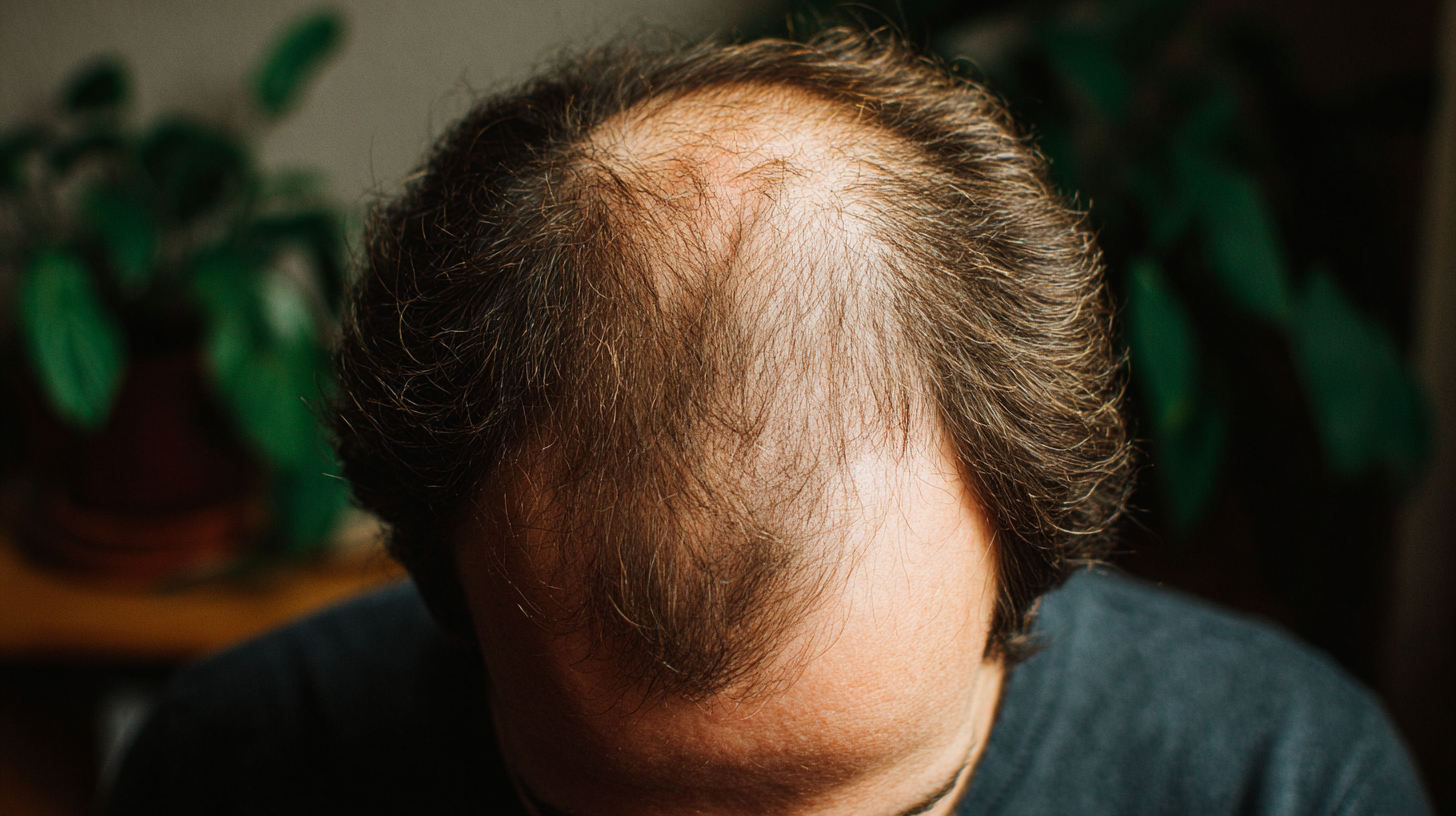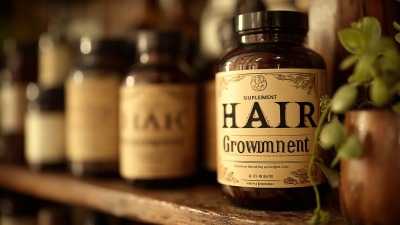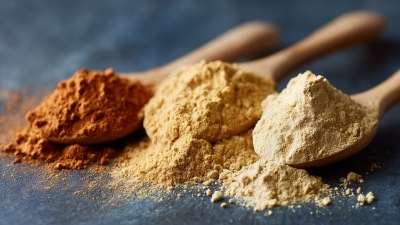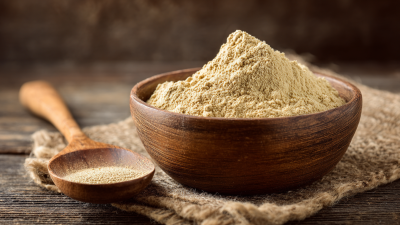
-
Home
-
Products
-
About US
-
FAQ
-
News
-
Tips
-
Contact Us
Leave Your Message
- Phone
- E-mail
- WhatsApp
- WA Business



When it comes to achieving optimal hair growth, choosing the right supplement is paramount. According to the Global Market Insights report, the hair care market, particularly the segment focusing on hair supplements, is projected to exceed $20 billion by 2026, driven by increasing consumer awareness and the growing prevalence of hair loss issues. A recent survey by the American Academy of Dermatology revealed that nearly 80 million Americans experience hair loss, highlighting the urgent need for effective solutions such as supplements for hair growth. These specialized supplements often contain a blend of vitamins, minerals, and botanical extracts that support hair health from within.

However, with an overwhelming array of options available, it's crucial to make informed choices based on scientific evidence, personal health needs, and professional recommendations. This article will provide essential tips to help you navigate the supplement market, ensuring you find the most suitable product for your hair growth goals.
When it comes to selecting the right supplement for optimal hair growth, several key factors must be taken into account to make an informed choice. First and foremost, the ingredients in a supplement are critical. Look for a formulation that includes proven elements like biotin, which a study published in the journal "Skin Pharmacology and Physiology" found to increase hair growth in individuals experiencing hair thinning. Similarly, vitamins A, C, D, and E, along with minerals like zinc and iron, play a significant role in maintaining healthy hair follicles.
Another important consideration is the safety and quality of the product. Choose supplements that have undergone third-party testing, as indicated by certifications from organizations such as NSF International or the U.S. Pharmacopeia. This ensures that the product is free from harmful contaminants and accurately labeled. Additionally, customer reviews can provide insights into the effectiveness of the supplement, making it easier to identify reliable options in a crowded market.
Tips: Always consult with a healthcare provider before starting any new supplement regimen, especially if you have underlying health conditions. Furthermore, maintain a balanced diet rich in protein and healthy fats, as these nutrients are foundational for hair growth. Regularly managing stress through practices like yoga or meditation can also significantly impact hair health.
When it comes to achieving optimal hair growth, understanding the role of essential nutrients is crucial. Among the top nutrients that promote strong and healthy hair, biotin, vitamin D, and omega-3 fatty acids stand out. Biotin, a B-vitamin, plays a vital role in keratin production, which is a primary component of hair. A deficiency in biotin can lead to hair thinning and loss, making it a popular supplement for those seeking to enhance their hair health.
Vitamin D is another key player in hair growth, as it helps create new hair follicles. Studies have shown that individuals with hair loss often have lower levels of vitamin D. Including foods rich in vitamin D or considering a supplement can support the hair growth cycle. Omega-3 fatty acids, found in fish oil, nourish the scalp and promote circulation, contributing to overall hair vitality. Incorporating these nutrients into your diet can be an effective strategy for achieving luscious locks.
| Nutrient | Benefits | Food Sources | Recommended Daily Intake |
|---|---|---|---|
| Biotin | Supports hair growth and strengthens strands. | Eggs, nuts, whole grains | 30 mcg |
| Vitamin E | Improves blood circulation in the scalp and enhances hair follicle health. | Nuts, spinach, avocados | 15 mg |
| Zinc | Helps restore hair growth and supports protein synthesis. | Meat, shellfish, legumes | 11 mg |
| Iron | Promotes oxygen transport to hair follicles, important for hair growth. | Red meat, beans, leafy greens | 8 mg |
| Vitamin D | Stimulates hair follicles and plays a role in the hair growth cycle. | Fatty fish, cod liver oil, fortified foods | 600 IU |
When considering supplements for hair growth, it’s essential to understand the different types available on the market. Notably, hair growth supplements can be categorized into several types, including vitamins, minerals, botanical extracts, and amino acids. According to a report by Grand View Research, the global market for hair care products, which includes supplements, is expected to reach USD 87.9 billion by 2028. This growth is fueled by an increasing consumer inclination toward dietary supplements that promote hair health.
Vitamins such as Biotin (Vitamin B7), Vitamin D, and Vitamin E play crucial roles in maintaining healthy hair. Research indicates that Biotin deficiency can lead to hair loss, emphasizing its potential as an effective supplement. Meanwhile, minerals like zinc and iron are vital for proper hair follicle function and can significantly influence overall hair health. Botanical extracts, such as saw palmetto and pumpkin seed oil, are also gaining traction due to studies that suggest they may help inhibit the hormone DHT, which is linked to hair thinning. A detailed understanding of these types can help consumers make informed decisions based on their specific hair growth needs.

When it comes to selecting supplements for optimal hair growth, many individuals fall into common pitfalls. One of the most frequent mistakes is choosing products based solely on marketing claims or flashy packaging. Just because a supplement promotes "hair growth" prominently does not mean it will be effective. It's essential to scrutinize the ingredient list and focus on proven components known for supporting hair health, such as biotin, vitamins A, C, D, and E, along with minerals like zinc and iron.
Another common error is neglecting to consider individual health needs and potential allergies. Each person’s body responds differently, and what works for one individual may not yield the same results for another. It's crucial to consult with a healthcare professional before starting any new supplement regimen, particularly if you have pre-existing conditions or are taking other medications. This tailored approach not only enhances the likelihood of success but also minimizes the risk of adverse reactions, ensuring a safer path toward achieving desired hair growth.

When considering supplements for optimal hair growth, achieving maximum effectiveness hinges on understanding the recommended dosage and timing. According to the American Academy of Dermatology, biotin, often touted for its role in hair health, is generally recommended at a dosage of 2,500 to 5,000 mcg per day. However, recent studies indicate that insufficient dosages may fail to elicit desired results, forming a basis for the assertion that adherence to proper timing—such as taking biotin with meals—can enhance its absorption and efficacy.
Another critical supplement is Vitamin D, which has been linked to hair follicle cycling. Research published in the Journal of Clinical Endocrinology & Metabolism suggests that a daily intake of 1,000 to 2,000 IU may help address deficiencies commonly correlated with hair loss. Timing is also essential for Vitamin D, with studies indicating that taking it in the morning can align better with circadian rhythms, potentially improving its effectiveness.
Combining these supplements at recommended intervals and dosages may help in optimizing hair growth results for those looking to improve their hair health.





